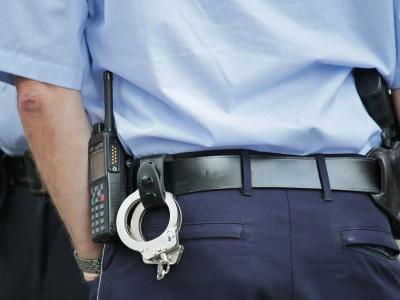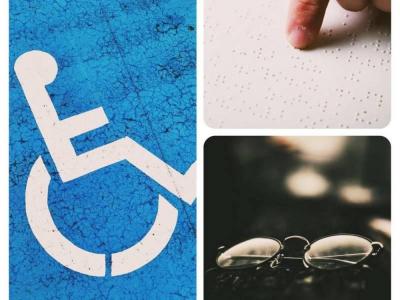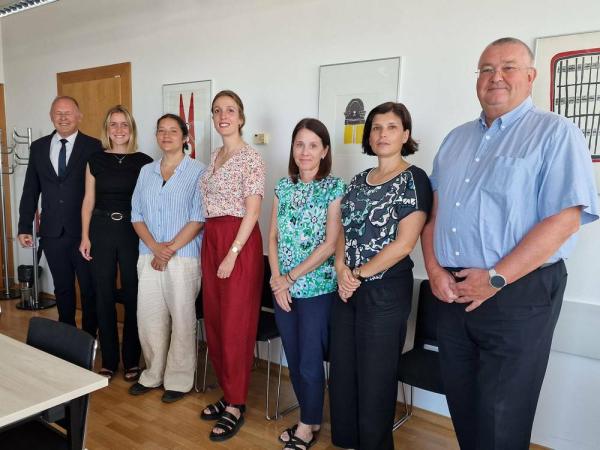With a delegation from the French Ministry of Justice on the care of minors in Slovenian juvenile law
Representatives of the Ombudsman of the Republic of
Slovenia (the Ombudsman) hosted three experts in the field of juvenile
law from France, who are in Slovenia on a study visit on legislation in
the field of juvenile delinquency and victims of crime. The French
guests are visiting Slovenia to gain insight into the judicial system
for the treatment and protection of children in Slovenia.
The
Deputy Ombudsman, Dr Jože Ruparčič, who is responsible for children's
rights at the Ombudsman, began by briefly outlining the main topics that
the Ombudsman deals with in the field of rights of children and
highlighted the good international cooperation, including in the network
of children's ombudsmen ENOC. He paid particular attention to peer
violence. "Such violence is a symptom of the society we live in. It
affects the whole of society and it is an resposibility of adults, who
must set an example for children and send a clear message to society
that violence is unacceptable," he stressed. He also spoke about
children's mental health, stressing in particular the attitude of adults
towards children. He considered that the Ombudsman's task is, among
other things, to promote non-violent communication in order to
strengthen respect for human rights and fundamental freedoms. He also
presented the Child advocacy, which had placed 50 child advocates in
2024 alone, and stressed the importance of respecting Articles 12 and 13
of the Convention on the Rights of the Child, which provide for the
right to freedom of expression.
Deputy Ombudsman Ivan Šelih, also Head of the
National Preventive Mechanism (DPM), presented the institution of the
Ombudsman and its possibilities for action, and spoke in more detail
about the work of the NPM, which, in cooperation with NGOs, exercises
powers under the Optional Protocol against Torture and Other Cruel
Treatment, ratified in 2006. He presented the system of visits and
monitoring of institutions where persons are deprived of their liberty.
"The DPM is dedicated to strengthening the protection of these persons
from torture and other cruel, inhuman or degrading treatment or
punishment. In 2024 alone, it carried out 72 visits to places of
deprivation of liberty, most of them unannounced," Šelih pointed out.
The DPM notes that, in principle, the living conditions and treatment of
persons deprived of their liberty have improved, and there is good
cooperation with NGOs and experts in the implementation of the mandate.
The
DPM members presented to the guests from France the findings and some
recommendations of the Slovenian DPM from their visits to institutions
where children and adolescents with emotional and behavioural problems,
mental health problems or who have already encountered the penal system
are placed. They were also informed about the situation in five centres
for training, work and care in Slovenia, which house children and
adolescents with mental and physical disabilities.
Some examples of good practice where presented, such
as the opening of a child and adolescent psychiatry ward in 2019 and a
special ward for children with the most severe forms of emotional and
behavioural disorders in Dornava in 2021. Examples of good practice
include smaller residential units, such as the Draga House in CUDV
Draga, where small groups of adolescents with severe forms of emotional
and behavioural disorders live in an environment that promotes learning
and responsibility.
DPM has made several recommendations for
systemic arrangements in the care of children and adolescents, but the
key recommendation remains: the institution should not be the first or
only answer, but the system should allow for early help in the
community. Only by working in a coherent way across different
departments will it be possible to ensure that all children are treated
safely and appropriately.













 Back
Back 






